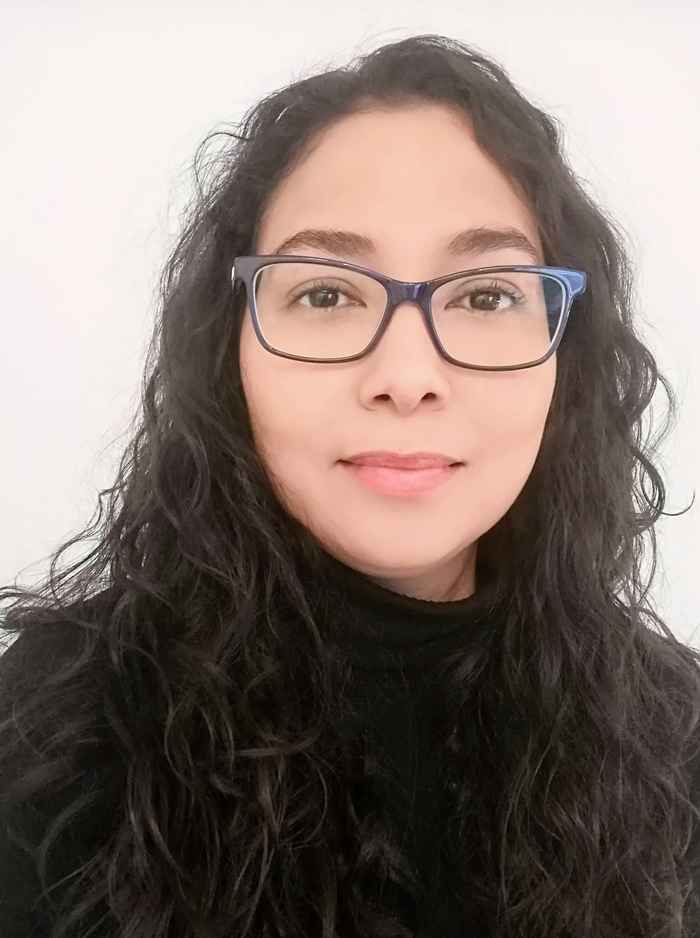Claudia Orellana Rodriguez (ABS): 'You can have a big social impact with simple data models'
22 June 2022

As an undergraduate student from El Salvador, Orellana-Rodriguez joined the L3S Research Center at the Leibniz University in Hanover, Germany for a research internship. She later returned to the L3S Research Center to work towards her Master’s degree. There, she was part of various EU projects in areas such as crowdsourcing, multimedia retrieval, and sentiment analysis. 'I learnt to use machine learning to address various social issues. Natural language processing, for instance, offers many potential ways of picking up signals. Take the rise of Trump in the United States. Opinion polls weren’t able to predict that with much accuracy but the sentiment expressed on social media gave a good idea of what voters felt. Through an analysis of tweets, we also did some studies to measure the popularity of Latin American presidents. It’s very interesting because surveys can’t always gauge that properly.'
Personal details often unnecessary for stronger engagement
In her PhD, which she completed at University College Dublin, Ireland, the data scientist combined all such knowledge in order to identify patterns of engagement, attention and influence in the digital media domain. Since 2016, she has collaborated with people from a number of different institutions, including the MIT Center for Civic Media, among other places. There, she worked with the MediaCloud team researching the influence of American news media. During her PhD in Machine Learning with a focus on Digital News, Orellana-Rodriguez looked at the interaction between journalists and their audience, and the consumption of and engagement with news on social media.'What we saw here was a particular need for interpretable models that were more accessible to journalists and easier to integrate into an already complex pipeline. Journalists wanted to know which topics people find most compelling and which moments are best to publish on those topics if they wish to maximise engagement with their audience. It was very educational. We noticed that, contrary to what we are often made to believe, it was quite possible to understand what readers are interested in without using their personal details. In addition, we discovered that you can personalise news by making very subtle adjustments and so really boost the number of clicks and subscriptions, without recurring to intrusive ads'. This is recsyslabs focus, where Orellana-Rodriguez and a team of talented researchers built AI powered products that provide personalized recommendations to readers without harvesting personal data.
The data scientist was recently hired by ABS and is part of the Analytics for a Better World institute, an initiative that aims to make a social impact with advanced analytics. To this end, she has joined forces with Professor Dick den Hertog and his team. 'The institute’s mission is to contribute with Analytics to the SDGs to help solve humanitarian and societal challenges. I work with inspiring colleagues who are all motivated to give the public sector and NGOs the means they need to enable positive changes that are also in line with the United Nations’ Sustainable Development Goals.'
Research and impact
Orellana Rodriguez believes her knowledge will allow her to make a substantial contribution to Analytics for a Better World. 'My background means I often think beyond making an impact in Europe, for example, in geographies like Latin America. However, in the Netherlands there are several groups of people we can help with the aid of machine learning and data analysis. Examples include asylum seekers, who also have needs in areas like education and health care but often don’t know where to look. We investigate how authorities can improve the provision of information for that group.' Another endeavor that occupies her is the supervision of graduate students. Together with a master’s student at the Vrije Universiteit Amsterdam and in collaboration with 510 - An Initiative of the Netherlands Red Cross, she is currently exploring framing strategies adopted in flood coverage by Malawian news media, using text mining to detect events and extract impact data to improve early warning for disasters. 'The aim is to help them deploy resources more effectively when disaster strikes. The combination of research and impact is intriguing. It’s also nice that you can sometimes make a real difference without the fanciest solutions. With relatively simple data models, you can often do something truly meaningful.'